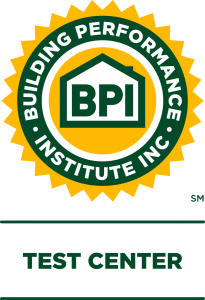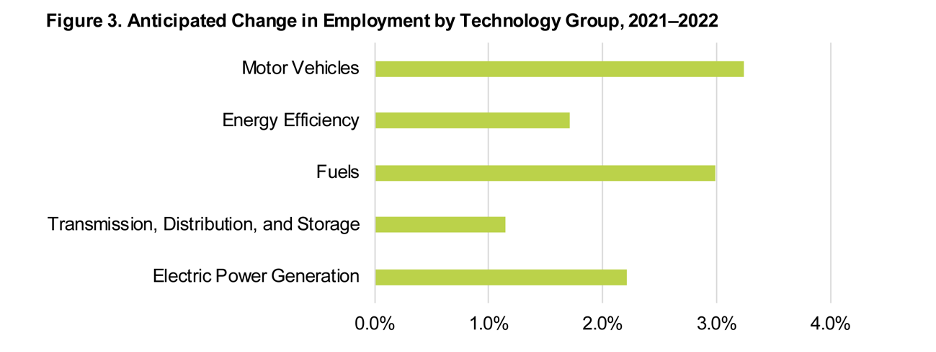No products in the cart.
DOE Home Energy Rebates Will Help Disadvantaged Communities
Low-income households and other individuals living in historically underserved or “disadvantaged” communities face disproportionately higher energy burdens – meaning they spend a high percentage of their gross income on their energy bills (including electricity, home heating, etc.) Individuals experiencing high energy burdens are forced to make the difficult choice between paying their utility bill each month or purchasing other necessities, like groceries or medicine. According to U.S. Census data, the average national household energy burden for low-income households is 8.6%. This far exceeds the 6% of income that is considered the maximum affordable amount for energy bills. It also contrasts sharply with the 3.1% of income that the average U.S. household spends on home energy bills.
Energy-burdened communities are more likely to deal with other compounding challenges as well. For example, they typically experience higher rates of adverse health effects and are more vulnerable to environmental disasters driven by climate change. As part of its working definition of a “disadvantaged community,” the U.S. Department of Energy (DOE) has identified 36 distinct burden indicators ranging from poor internet access to high rates of unemployment.
One of the leading causes of high energy burdens in disadvantaged communities is the prevalence of inefficient homes and appliances. Investing in energy efficiency retrofits and weatherization measures help reduce whole-home energy use and serve as an effective long-term strategy for addressing high energy burdens in historically underserved communities.
Programs like the DOE Weatherization Assistance Program (WAP) have made significant progress in reducing energy costs for low-moderate income households by providing them with cost-effective building shell improvements such as insulation and air sealing; heating, ventilation, and air conditioning systems; lighting; and appliances. Home weatherization has several other major benefits beyond making homes more energy efficient. For example, they also support household health and quality of living by improving indoor air quality, improving safety by removing energy-related hazards like carbon monoxide leaks, creating stable jobs in the local community, and lowering household carbon emissions.
While the benefits of these programs are vast, their impact has historically been limited by a lack of available funds, among other factors. The COVID-19 pandemic also disrupted the operation of existing energy efficiency and weatherization programs; prohibiting contractors from entering peoples’ homes to provide much-needed upgrades.
The Inflation Reduction Act: DOE Home Energy Rebate Programs
In 2021, President Biden signed the Inflation Reduction Act (IRA), which represents the most significant legislation in U.S. history to address home energy affordability and climate change. The law will make it more affordable for U.S. families to buy energy-efficient appliances, weatherize their home, and save on their energy bills each month.
By making highly efficient electric appliances and energy efficiency measures more accessible to communities most in need, President Biden is making good on his promise of advancing environmental justice. During his first week in office, President Biden signed Executive Order 14008, which established the Justice40 Initiative. The goal of Justice40 is to ensure that at least 40% of the benefits of all federal investments flow to disadvantaged communities.
The IRA creates two new programs that will provide households with $8.8 billion in rebates for high efficiency electric appliances and for whole-home energy retrofits. Collectively, they are known as the Home Energy Rebate Programs. Individually, they are referred to as the Home Efficiency Program and the Home Electrification Program.
The Home Efficiency Program will provide $4.3 billion to states to help residents make their entire home more energy efficient, while the Home Electrification Program provides $4.5 billion to states and tribes to install highly efficient home appliances and equipment in resident homes.
How DOE’s Home Energy Rebates Specifically Help Low-Income Communities
Both programs specifically target low-moderate income households. While the Home Efficiency Program is open to homeowners of all income levels, low-moderate income homeowners are eligible for double the amount in rebates (up to $8,000 for whole-home weatherization upgrades compared to normal income households). In contrast, the Home Electrification Program is only available to low-moderate income homeowners and multi-family building owners whose tenants are at least 50% low-moderate income.
Additionally, under the Home Efficiency Program, contractors who perform a home energy efficiency retrofit on a home in a disadvantaged community are eligible to claim a $200 rebate for each home they weatherize.
How Will Income Eligibility for the Home Energy Rebate Programs be Determined?
The Inflation Reduction Act defines “low- or moderate-income households” as individuals or a family whose income is less than 80% of their area’s annual median income. However, DOE has not yet confirmed how it will require states to verify potential program participants’ income.
For more information on DOE’s Home Energy Rebate Programs, see these related articles:
Paving the Way for Economic Growth in Underserved Communities
The energy efficiency and electrification rebate funding available under the IRA will not only deliver energy savings benefits to energy-burdened households but will also spur economic growth through the creation of stable, good-paying jobs. Hundreds of thousands of home performance contractors specializing in fields ranging from insulation to HVAC installation will be needed to meet the demand for upgrades created by the IRA.
While these once-in-a-generation programs under the IRA present exciting career opportunities for job seekers, it also highlights the urgent need for new and existing contractors to begin training and getting certified so that they’re able to take on the future volume of work.
The Benefit of Building Performance Institute (BPI) Certifications
As the premier credentialing organization for the home performance industry, the Building Performance Institute (BPI) will play an integral role in helping new and experienced contractors prepare for IRA rebate funding by getting appropriately trained and certified. BPI provides certifications, standards, and programs that help contractors develop their professional proficiencies and build their careers.
BPI has a long history of teaching contractors the value of whole-home energy improvements. BPI’s “house as a system” approach focuses on how improvements throughout the entire home work together to give homeowners the most cost-effective results. Instead of hiring multiple contractors that specialize in a single trade, it can be more efficient and cost-effective to hire a BPI-certified energy auditor who can diagnose issues in a home and solve them by performing services like air sealing and HVAC replacement. BPI certifications not only serve to provide contractors with valuable knowledge and technical expertise, but can also be used as prerequisites by more experienced candidates pursuing advanced certifications like BPI’s energy auditor certification.
The Building Performance Institute is also closely aligned with DOE’s goals for the Home Energy Rebate Programs – like BPI, DOE is also looking at weatherization measures with a “whole-home” approach to ensure the greatest benefit for households.
Furthermore, BPI certification provides a strong foundation for contractors who want to align their business services more directly with the DOE Weatherization Assistance Program (WAP). In order for a state agency to provide weatherization services funded by WAP, the agency must employ a certified Energy Auditor and/or Quality Control Inspector. These individuals have worked their way up the ranks of the BPI certification program to earn the highest levels of certification through DOE’s Home Energy Professionals (HEP) program.
Preparing for the Opportunity
DOE Home Energy Rebates created by the Inflation Reduction Act will create unprecedented demand for weatherization services, and the most qualified people to perform this work are BPI-certified energy auditors and contractors. If you want to gain new clients and grow your business, now is the best time to earn a BPI Certification so that you can participate in the Weatherization Assistance Program and Home Energy Rebate Programs.
Are you ready for the new business that this funding will generate? Learn how you can hone your skills today with Everblue’s wide-ranging and flexible course offerings!







